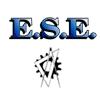Energy contents of heat-treated and intact dry extruded-expelled soybean meal fed to growing pigs
Thermal processing is commonly performed to deactivate antinutritional factors in soybeans used as swine feed. One such process combines extrusion with expelling, resulting in dry extrudedexpelled soybean meal (DESBM). For DESBM to be practically used as feed in the swine industry, its energy content must be accurately determined. Furthermore, information is limited concerning the effect heat damage during processing has on the energy content of soybean meal. Therefore, an experiment was conducted to determine the digestible energy (DE) and metabolizable energy (ME) contents of both heat-treated and intact DESBM. Eighteen growing barrows (18.03 ± 0.61 kg initial body weight) were individually housed in metabolism crates and randomly allotted to one of three dietary treatments to give six replicates per treatment. The three experimental diets were: a corn-soybean meal-based basal diet, two test diets with simple substitution of basal diet with intact DESBM or heat-treated DESBM in a 70:30 ratio. Intact DESBM was autoclaved at 120°C for 60 mins to make heat-treated DESBM (heat-DESBM). Pigs were fed the experimental diets for 16 d, including 10 d for adaptation and 6 d for total collection of feces and urine. Pigs were fed their assigned diets at 550 kcal ME/kg BW0.60 per day (based on body weight on days 1 and 10), which was close to ad libitum intake. The energy contents of the tested DESBM were calculated by the difference method. All data were analyzed using the Mixed procedure of SAS with the individual pig as the experimental unit. Pigs fed the intact DESBM diet showed greater (P < 0.01) apparent total tract digestibility of dry matter (DM), gross energy (GE), and GE retention (%) than those fed heat-DESBM. This resulted in greater DE (P < 0.01) and ME (P = 0.05) in the DESBM diet than in the heat-DESBM diet. Therefore, intact DESBM had greater (P < 0.05) DE (4,591 kcal/kg DM vs. 4,222 kcal/kg DM) and ME (4,099 kcal/kg DM vs. 3,692 kcal/kg DM) contents than heat-DESBM. Pigs’ lower energy use with heat-DESBM may be attributable to protein denaturation and insoluble protein caused by the Maillard reaction during heat processing. Therefore, it is recommended that heat damage be carefully considered when soybeans are processed into meal for swine feed.
Key words: dry extruded-expelled soybean meal, energy content, heat treatment, pigs.
Published in the proceedings of the Animal Nutrition Conference of Canada 2020. For information on the event, past and future editions, check out https://animalnutritionconference.ca/.












